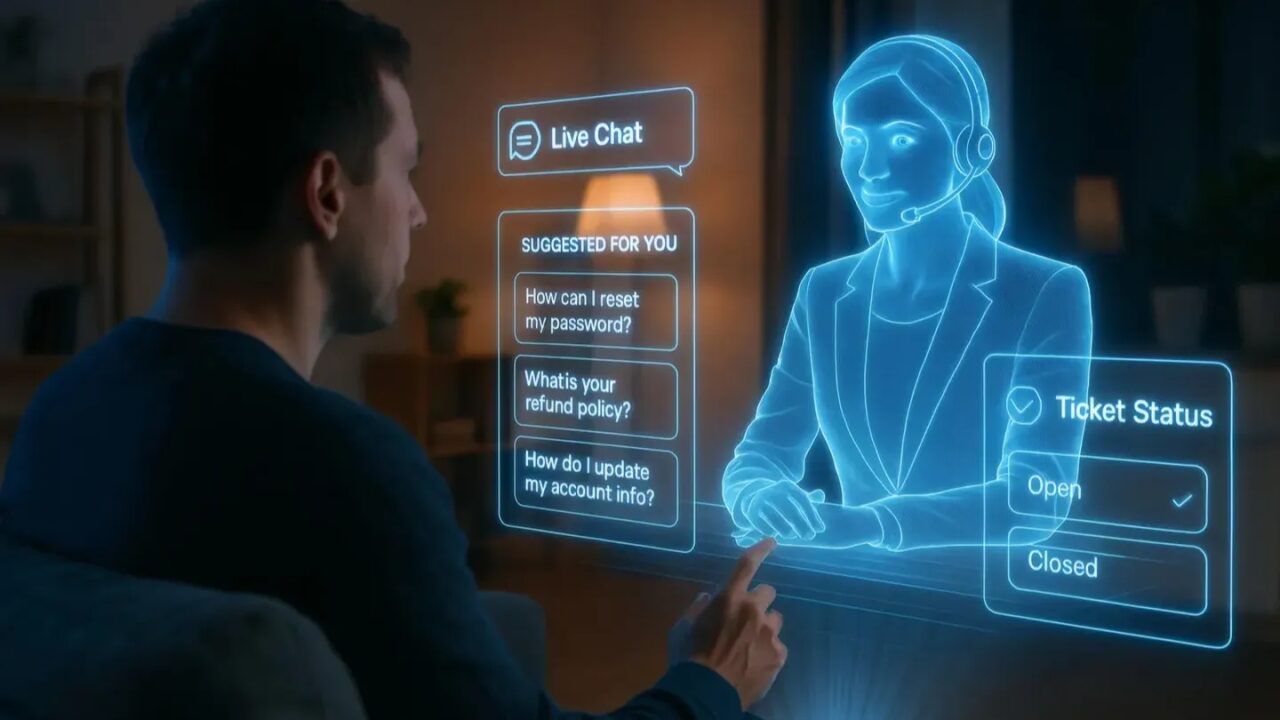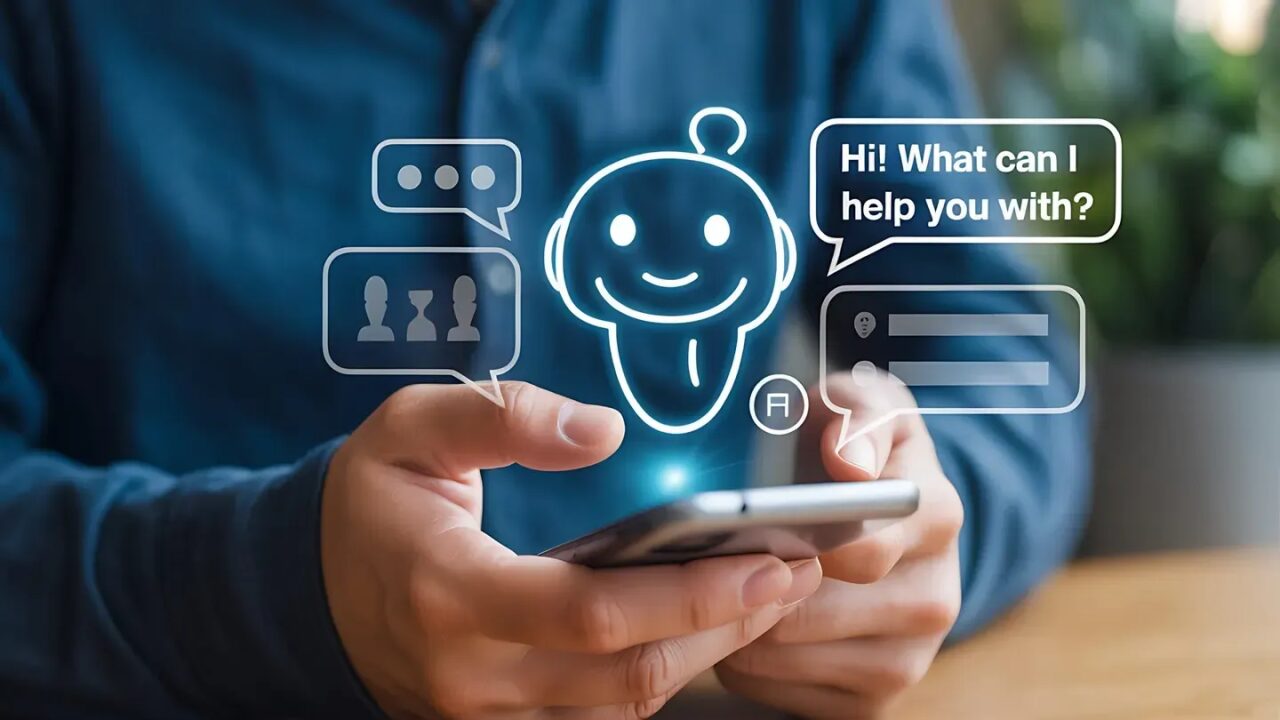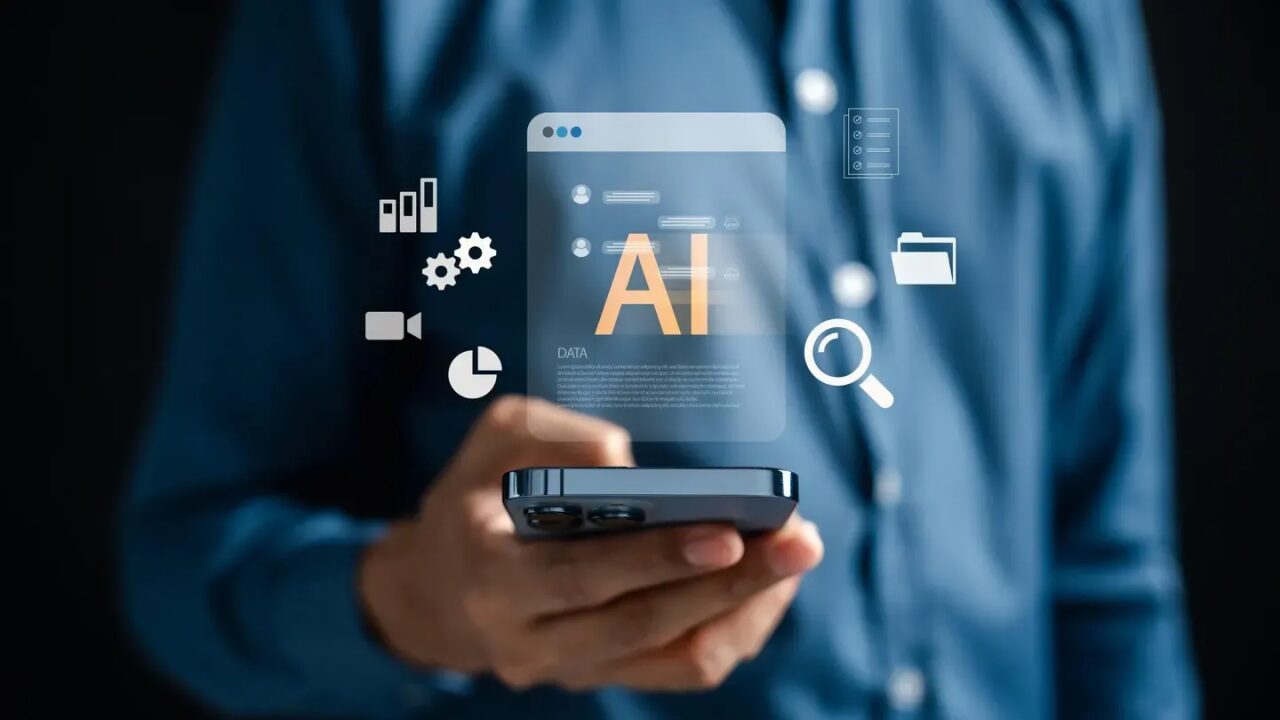The Amazing Ways AI Agents Will Transform Healthcare
21 July 2025
Healthcare is already a hotbed of AI activity, which has more than proved its worth as a tool for diagnosing illness, monitoring recovery, and developing new medicines.
But globally, the industry is still grappling with longstanding challenges, including shortages of clinical staff, aging populations, and managing the front-loaded costs of transitioning to more preventative models of healthcare.
This is where AI agents, the next wave of AI transformation, will come in. Compared to existing AI (think of the current generation of language-based chatbots like ChatGPT), Agentic AI is capable of carrying out far more complex tasks with minimal human interaction.
To give a simple example, a non-agentic computer vision-based AI algorithm can be used to scan medical images and spot early warning signs of cancer.
An agentic AI, on the other hand, could cross-reference the images with other clinical patient data, create a detailed report for a doctor, and schedule a follow-up appointment, all without human involvement.
This switch from passive provider of information to active action-taking is what defines the newest generation of tools and applications driven by agentic AI.
Experts predict it will soon be just as transformational to healthcare as today’s cutting-edge computer vision, chatbots and other AI innovations have proven to be. So here’s an overview of how it may soon be put to work in hospitals, doctors’ surgeries, and care homes near you.

Agentic Healthcare Intelligence
Several use cases for agentic applications have been identified in healthcare. Although most are currently theoretical, they give us an idea of how agents could surpass the capability of non-agentic tools and apps.
Automated triage and scheduling systems could relieve clinical and administrative staff of much of the burden of routine procedures and paperwork. Rather than simply asking patients to answer questions, it can use computer vision to carry out initial examinations and flag urgent cases for immediate help.
AI agents have also been built to assist with clinical decision-making. By augmenting large language models like GPT-4 with tools to understand MRI, CT and other medical data, one test found an agent could reach a correct diagnosis in 91% of cases.
They will also become increasingly useful in remote patient monitoring. Their ability to make more accurate decisions about when to intervene and how to protect patient privacy and security will mean more people can stay out of hospital and be treated at home.
Agents are even being put to use in clinical trials, carrying out tasks such as screening applications, matching candidates to trials and booking transportation to the test facility.
For non-clinical use, the AI health monitors we use on smartwatches and fitness bands will become much smarter and more proactive. Rather than simply measuring heart rate, skin temperature and so on, they’ll be ready to give us a holistic overview of our health at any time and then monitor the action we take towards improving it.
Finally, agents will help complete administrative tasks more efficiently by automating decisions around scheduling, reading and replying to emails, and handling billing and commissioning. While this can be done by existing AI on a task-by-task basis, agents will take oversight of entire workflows or even business functions, reducing human error and time spent on routine work.
A great deal of academic research is currently taking place into how we can safely use and understand the impact of agentic AI in healthcare. Answering these questions will play a bit part in helping these use cases get off the ground.
What About The Risks?
With greater autonomy and the ability to interact with external systems, AI agents clearly introduce new risks that could be particularly dangerous in healthcare ecosystems.
Data security is an obvious one, and new security measures will be required to balance the need for agents to access personal data with the dangers this creates. Confidential patient information, as well as control over critical systems, could be at stake if agents are compromised by malicious individuals or groups or just don’t work like they’re supposed to.
Agents will also force healthcare service providers to answer questions and provide assurances about accountability. AI can’t take responsibility for its actions, so how is it shared between the healthcare industry, AI developers, and the clinical staff and patients who use it?
Then there’s the simple fact that AI is often wrong. Whether it’s down to bad data or hallucination, it simply isn’t right 100 percent of the time. Of course, neither are humans. So when is it right to hand over the reins?
And, of course, we're far from the point where anyone thinks it’s right to let machines make decisions that affect humans without human oversight. So, how do we make sure that oversight is in place, effective and accountable?
Overcoming all of these challenges will be critical to safely integrating agentic AI into the healthcare system and unlocking the benefits it promises.
The Future Of Agents In Healthcare
By the end of the decade, we can expect agentic AI to have radically changed the way healthcare is delivered, managed and experienced.
Globally, healthcare has for some time understood the importance of moving from reactive to preventative care. Agents will proactively interact with wearables and home sensors to enable far earlier interventions when warning signs are detected.
This will happen within an agentic ecosystem, which delivers fully personalized care by fine-tuning treatment in response to patient data. Meanwhile, the workload of clinical professionals will involve far less time spent filling in forms or reviewing notes and more time using their uniquely human skills and experience to improve patient outcomes.
Access to healthcare in underserved areas could increase, with agents acting as gateways to telemedicine services, triaging initial contacts as well as freeing up human doctors to see more patients.
Of course, all of this depends on solving the challenges mentioned here. Once society understands the impact agents can have, there will be a demand for evidence that it can be trusted. By establishing where the boundaries lie as we build, test and use it today, we can lay the groundwork for a safe, agentic tomorrow.
Related Articles
7 Legal Tech Trends That Will Reshape Every Business in 2026
By now, “smart” versions exist of just about every home appliance, gadget and gizmos we can think of. However, manufacturers continue[...]
8 Skills You Need To Manage The New AI Agent Workforce
By now, “smart” versions exist of just about every home appliance, gadget and gizmos we can think of. However, manufacturers continue[...]
Should AI Have Free Speech?
By now, “smart” versions exist of just about every home appliance, gadget and gizmos we can think of. However, manufacturers continue[...]
5 Amazing AI Agent Use Cases That Will Transform Any Business In 2026
By now, “smart” versions exist of just about every home appliance, gadget and gizmos we can think of. However, manufacturers continue[...]
8 Smartphone Trends That Will Shape 2026
By now, “smart” versions exist of just about every home appliance, gadget and gizmos we can think of. However, manufacturers continue[...]
7 Media Trends That Will Redefine Entertainment In 2026
By now, “smart” versions exist of just about every home appliance, gadget and gizmos we can think of. However, manufacturers continue[...]
Sign up to Stay in Touch!
Bernard Marr is a world-renowned futurist, influencer and thought leader in the fields of business and technology, with a passion for using technology for the good of humanity.
He is a best-selling author of over 20 books, writes a regular column for Forbes and advises and coaches many of the world’s best-known organisations.
He has a combined following of 4 million people across his social media channels and newsletters and was ranked by LinkedIn as one of the top 5 business influencers in the world.
Bernard’s latest book is ‘Generative AI in Practice’.










Social Media